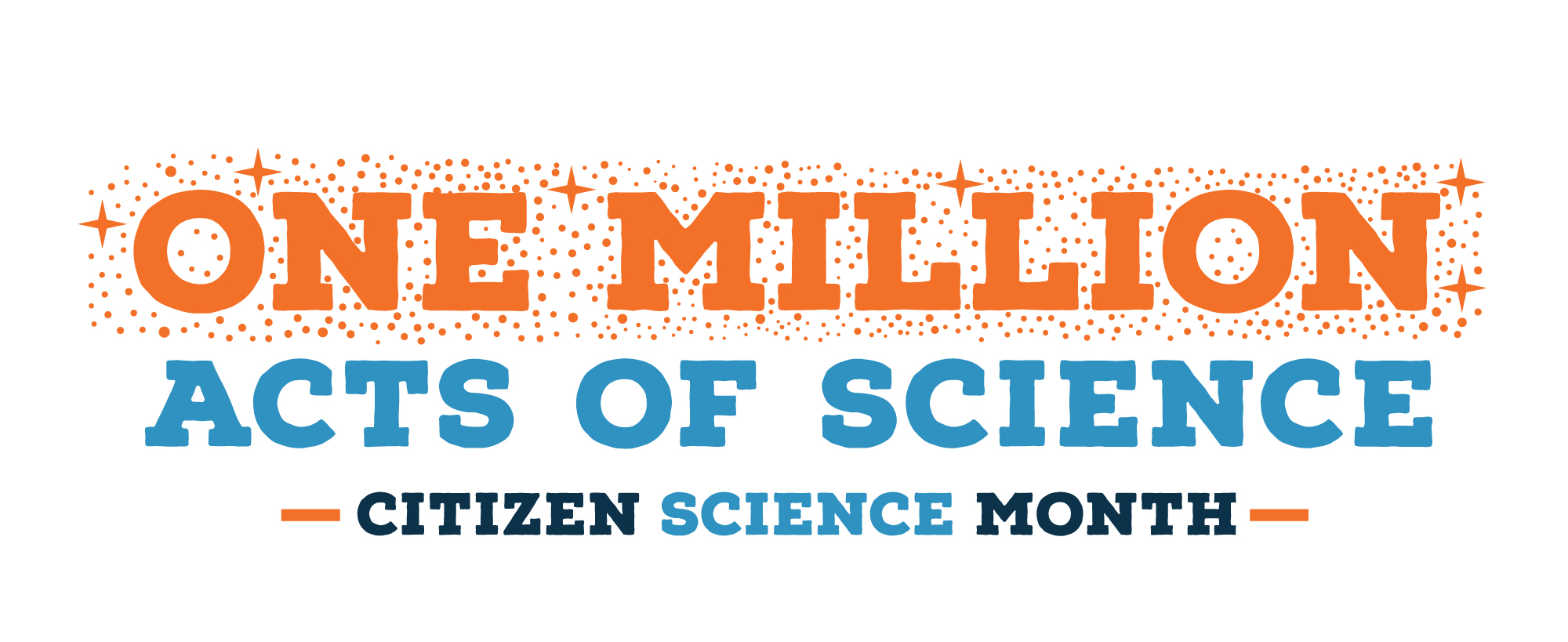One Million Acts of Science in One Month! Log Observations and Help Accelerate Scientific Research
Participatory science gains traction; researchers aim for 1,000,000 Acts of Science this April during Citizen Science Month
Tempe, Arizona – (February 5, 2024) – This April, everyone, everywhere is invited to keep their eyes, ears, and phones open to log observations of the world and contribute to a total of 1,000,000 Acts of Science during Citizen Science Month. SciStarter.org, Arizona State University and partners are encouraging people from all walks of life to collect, share, or review data to help accelerate important scientific research.
Schools, federal agencies, associations, community based organizations and individuals are setting goals for personal and team participation across hundreds of projects and events in need of volunteers and their observations. Several hundred libraries are involved in the movement.
Together, organizers are aiming for a collective one million interactions during Citizen Science Month. Here’s how to get involved!
- Go to CitizenScienceMonth.org, scroll down, and sign up to get involved in One Million Acts of Science as an individual, organization, citizen science project/platform or library.
- Create a SciStarter account at SciStarter.org/login, then find any project that interests you.
- Participate in a project or event featured on CitizenScienceMonth.org anytime between April 1st – April 30th, 2024. (We’ll send an email to remind you.)
- Report your Acts or simply reply to a survey we’ll email to you with the estimated number of Acts of Science performed! We’ll include your name on CitizenScienceMonth.org in recognition of your efforts.
- Track the growing number of Acts of Science on CitizenScienceMonth.org and celebrate when we reach ONE MILLION!
People can participate in a huge variety of easy-to-join research projects that can be done from anywhere and many are online, ranging from human health (Stall Catchers), to astronomy (Globe at Night), to biodiversity (iNaturalist) and climate change (ISeeChange). Most projects only require a smartphone to log the data. Nearly a thousand libraries have joined the movement and in some regions, special kits for more involved projects (such as air quality monitoring) are available for loan.
“A million observations in one month is ambitious,” said Darlene Cavalier, founder of SciStarter and Professor of Practice at Arizona State University. “But there’s a real need for these Acts and this data for hundreds of research projects. We’re hoping that with participation from everyone from school groups to families, from working professionals to seniors we can reach our goal, and make a real impact on important scientific research”
Experience Citizen Science
“Citizen science means never having to say you’re bored!” said Mike Capraro, a retiree and avid citizen scientist. “It has provided me great learning opportunities, great camaraderie with fellow volunteers of all ages and backgrounds, and the opportunity to make real contributions to a variety of interesting, exciting, and important projects.”
“Our Girl Scouts absolutely loved the idea of learning how to collect data, make observations and come up with a hypothesis, let alone do all the field work themselves,” said Stacey Leinen, a Girl Scouts Troop Leader. “It was amazing to see the excitement and knowing that my girls were learning something by actually getting out and DOING instead of being inside.”
Global Collaborators
In just a few years, Global Citizen Science Month (April) has grown from a single day of events to a coordinated month-long effort organized by SciStarter and Arizona State University, in collaboration with the Network of the National Library of Medicine (NNLM) All of Us Program Center (NAPC), Association for Advancing Participatory Sciences, Science Friday, National Geographic, the European, African, Australian and Global Citizen Science Partnership Associations, and many others from around the world.
Join the movement at CitizenScienceMonth.org. You’ll find projects and events that align with your interests, support important research, and count towards the goal of completing 1,000,000 Acts of Science during Global Citizen Science Month.
About SciStarter
SciStarter is a research affiliate of the School for the Future of Innovation in Society at Arizona State University. It provides a free web platform that connects scientists with volunteers from all walks of life. SciStarter connects millions of people to thousands of scientists in need of their help. SciStarter partners with a thousand libraries, museums, school districts, Girl Scouts, Verizon and many other organizations to train, guide and support community participation in projects and to measure and share individual and collective impact through sophisticated data analytics. SciStarter is supported by federal agencies including the National Science Foundation and NASA, the NNLM All of Us Program Center, private foundations, school districts and universities, Verizon and the Girl Scouts USA, making it possible to offer free access to a searchable database of projects and events, trainings, curated experiences, and personalized data dashboards to track participation across websites and apps.
About the School for the Future of Innovation in Society at Arizona State University
Arizona State University School for the Future of Innovation in Society (SFIS) is a transdisciplinary unit at the vanguard of ASU’s commitment to linking innovation to public value. SFIS pursues a vision of responsible innovation that anticipates challenges and opportunities, integrates diverse knowledge and perspectives, and engages broad audiences. By examining the ways we translate imagination into innovation — and how we blend technical and social concerns along the way — SFIS aims to build a future for everyone.


